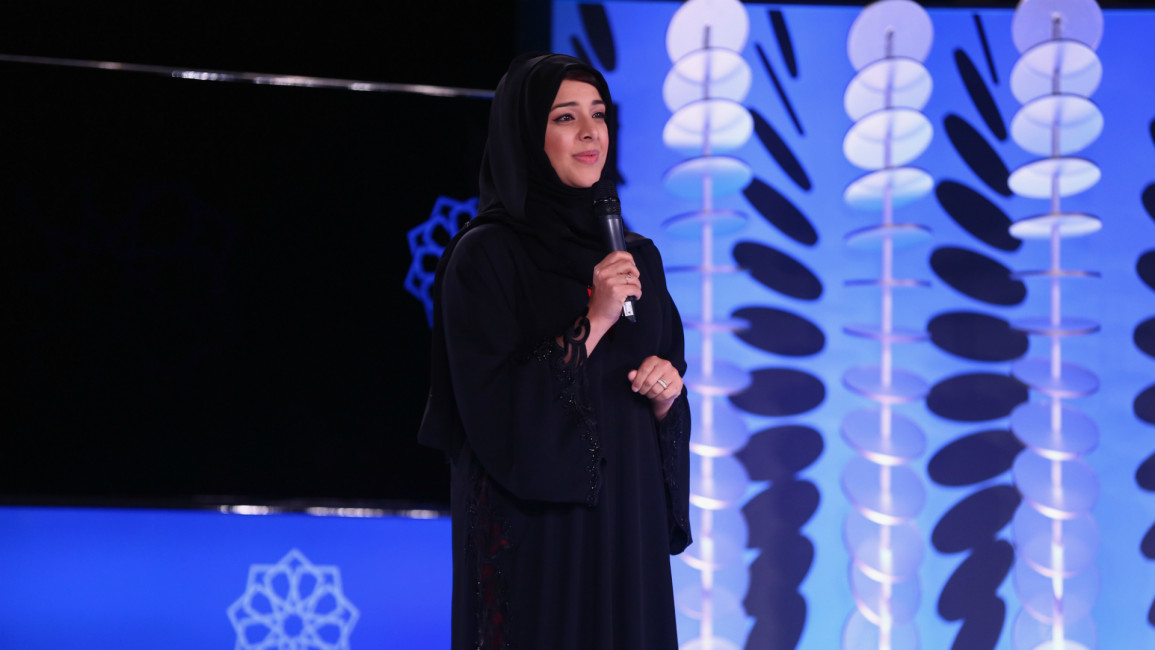UAE to finally 'accept' Syrian refugees
UAE to finally 'accept' Syrian refugees
After criticism from human rights groups for not accepting any of Syria's millions of refugees, the UAE said it will finally take in asylum seekers from the war-torn country.
2 min read
The UAE says it has given more than $750 million to the refugee crisis [Getty]
The UAE has claimed it will welcome 15,000 Syrian refugees over the next five years at a UN "Leaders' Summit on Refugees" meeting in New York.
The announcement would make a major U-turn for the Gulf state which has been criticised along with other GCC countries for not taking its share of refugees.
Previously, Amnesty International among others had said that the UAE had taken in none of the millions of Syrian refugees. The UAE now claims it is revising its current strict system for asylum applications.
"Five years ago, before the Syrian crisis erupted, 115,000 Syrians lived and worked in the UAE, joining more than 200 different nationalities and ethnicities," said the UAE's Minister of State for International Cooperation Reem al-Hashemi at the UN summit.
She then claimed that the UAE had welcomed a further 123,000 Syrians since the start of the conflict.
These would have come on spousal, family, and work visas, although human rights groups have been sceptical about these figures and there have been reports of Abu Dhabi blocking new visas for Syrians.
"We meet at a critical time. The number of refugees and displaced persons is the largest in modern history. This crisis is being driven by a series of interlinked conflicts, fueled by extremism that crosses borders and transcends geographies," Hashemi continued, one of the UAE's seven women ministers.
She claimed that over the last five years the UAE had provided more than $750 million towards the Syrian refugee crisis.
Hashemi also said that for the last three years the emirates had contributed in excess of one percent of its gross national income annually to foreign aid putting it among the world's top global donors.
The announcement would make a major U-turn for the Gulf state which has been criticised along with other GCC countries for not taking its share of refugees.
Previously, Amnesty International among others had said that the UAE had taken in none of the millions of Syrian refugees. The UAE now claims it is revising its current strict system for asylum applications.
"Five years ago, before the Syrian crisis erupted, 115,000 Syrians lived and worked in the UAE, joining more than 200 different nationalities and ethnicities," said the UAE's Minister of State for International Cooperation Reem al-Hashemi at the UN summit.
She then claimed that the UAE had welcomed a further 123,000 Syrians since the start of the conflict.
These would have come on spousal, family, and work visas, although human rights groups have been sceptical about these figures and there have been reports of Abu Dhabi blocking new visas for Syrians.
"We meet at a critical time. The number of refugees and displaced persons is the largest in modern history. This crisis is being driven by a series of interlinked conflicts, fueled by extremism that crosses borders and transcends geographies," Hashemi continued, one of the UAE's seven women ministers.
She claimed that over the last five years the UAE had provided more than $750 million towards the Syrian refugee crisis.
Hashemi also said that for the last three years the emirates had contributed in excess of one percent of its gross national income annually to foreign aid putting it among the world's top global donors.
 |
We meet at a critical time. The number of refugees and displaced persons is the largest in modern history. - Reem al Hashemi, UAE Minister of State for International Cooperation |
 |
The UAE has faced criticism from international humanitarian organisations for its approach to the Syrian refugee crisis.
In March, Amnesty International noted that the UAE - in additon to other Gulf states Qatar, Saudi Arabia, Kuwait, and Bahrain - had offered zero resettlement places to Syrian refugees.
Speaking at the New York summit on Wednesday US President Barack Obama announced that world leaders had committed to take in 360,000 refugees in 2017.
Al Hashemi’s comments come a day after Saudi Arabia’s Crown Prince Mohammed bin Nayef announced that his country will provide $75 million to aid refugees in coordination with international aid organisations.



